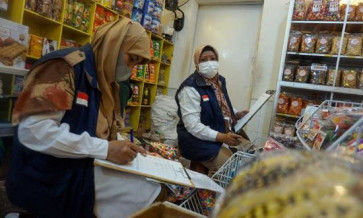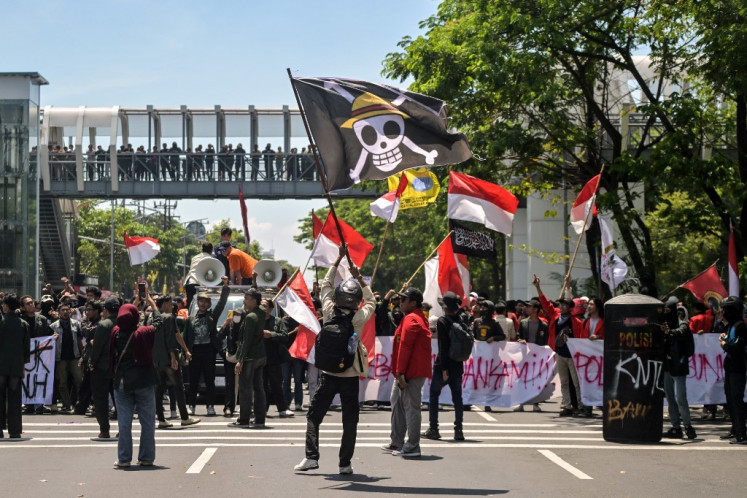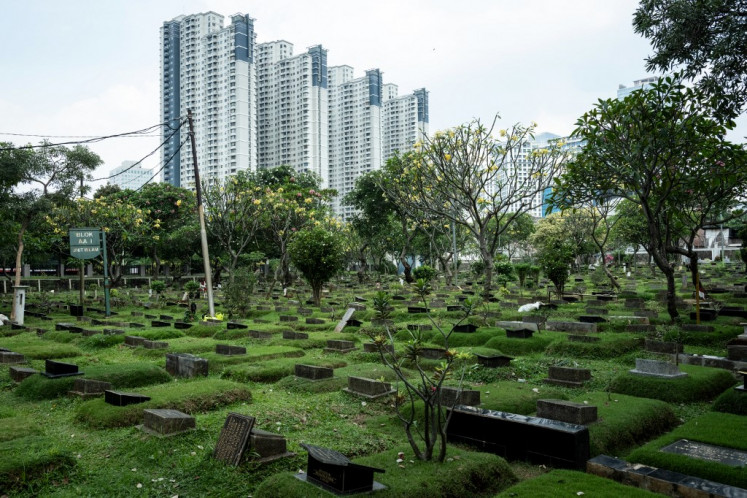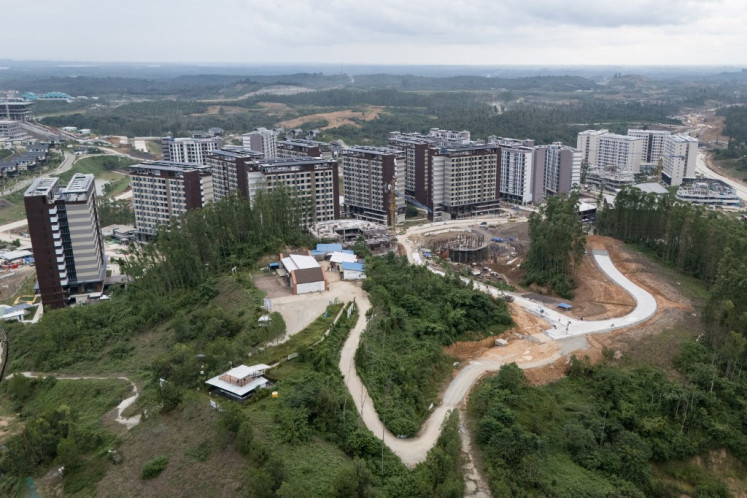Popular Reads
Top Results
Can't find what you're looking for?
View all search resultsPopular Reads
Top Results
Can't find what you're looking for?
View all search resultsASEAN security cooperation on agenda following IS defeat
Late last month, Kurdish-led forces announced they had conquered the last stronghold of the Islamic State (IS) jihadist group in Baghouz, eastern Syria, but the defeat is no cause for relief for countries in Southeast Asia
Change text size
Gift Premium Articles
to Anyone
L
ate last month, Kurdish-led forces announced they had conquered the last stronghold of the Islamic State (IS) jihadist group in Baghouz, eastern Syria, but the defeat is no cause for relief for countries in Southeast Asia.
The question that keeps surfacing is what to do with IS sympathizers and their families who had left their countries and now seek to return, as ASEAN member states explore the need to step up security cooperation as well as individual state responses to act on these so-called returnees.
“It is a very difficult question for all ASEAN governments right now. We’re still working out the national response to this because there are IS fighters from several ASEAN member states, [though] not all ASEAN member states,” said Singapore’s permanent representative to ASEAN, Kok Li Peng, in a recent discussion in Depok, West Java.
It is estimated that more than 1,000 people had left Southeast Asia to join the jihadist group since 2012, and while over half of them hail from Indonesia, most were intercepted before crossing the Syrian border through Turkey.
According to the International Committee of the Red Cross (ICRC) there are currently 38 Indonesians detained in Syria, but unpublished government data suggest there could be more.
The Institute of Strategic and International Studies (ISIS) Malaysia pointed out that 102 Malaysians migrated to IS territories, of whom 40 have been killed. The remaining 51 are scattered in the region and include 17 children.
Singapore has decided to bolster its troops’ counterterror training and equipment, The Straits Times reported recently.
The Indonesian government insists it will have to vet returnees who claim to be Indonesian citizens, because they likely left the country illegally and might not have proper documentation to prove their claims. Previous returnees were placed in deradicalization programs.
Kuala Lumpur has floated the idea of rehabilitation programs to ensure the returnees can be resettled into society.
“What happens to them [returnees] within their own countries, that is something every ASEAN government must decide for itself. At the same time, we are aware that our region is closely connected geographically and physically, and therefore we will keep [up] practical and feasible ways to monitor and to pick up suspected fighters,” Kok said.
Observers say the defeat in Syria also does not diminish the existing challenge of facing various groups affiliated with IS, such as Indonesia’s homegrown Jamaah Ansharut Daulah (JAD), that still exists in the region and could attack at any time.
As neighbors, most ASEAN member states have porous borders, and it is especially the case with Indonesia, Malaysia and the Philippines, with various backdoors routes that allow foreign militants to move freely and join groups such as Abu Sayyaf, which operates in Sulu waters.
The Indonesian National Counterterrorism Agency’s director for regional and multilateral cooperation, Andhika Chrisnayudhanto, said that ASEAN had already drafted a regional action plan to prevent radicalism and violent extremism. “There are ways to overcome these problems […] but the implementation process and the regulations are still being tweaked in accordance with the available resources,” he said.
The region’s military forces have also tried to offer a solution through the Our Eyes Initiative (OEI), an intelligence-sharing platform for ASEAN member states that was initiated by Indonesia’s Defense Ministry and had gone operational early this year.
Under the OIE framework, any ASEAN nation would be able to share information and intelligence on details like the movement of peoples, including returning foreign terrorist fighters, said Maj. Gen. Rizerius Eko Hadisancoko, the ministry’s director general for strategic defense.
“The nature of this radical group is that they [are not familiar with] national boundaries, so they are a common enemy and there is no harm in sharing information,” he said.










